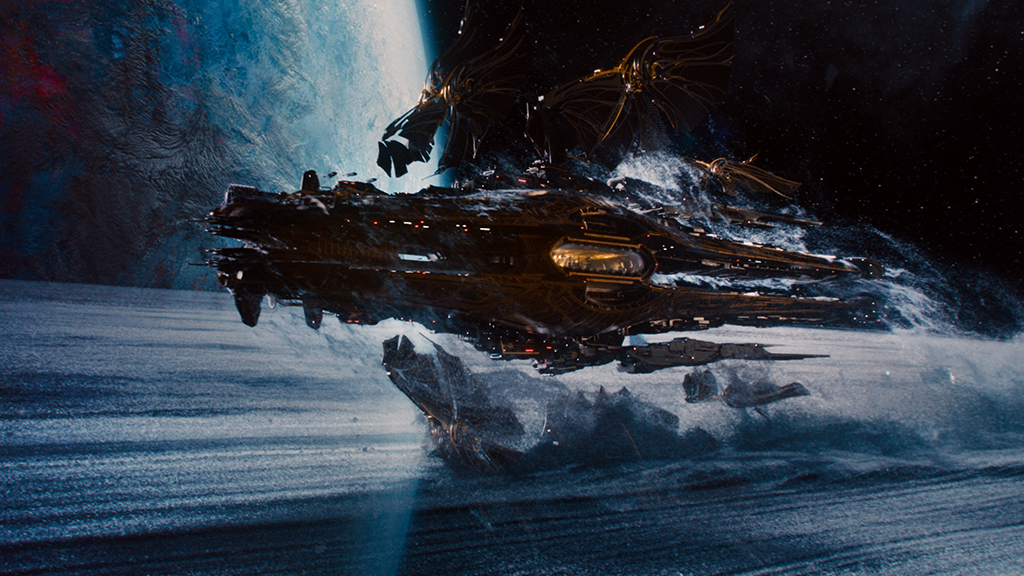Jupiter Ascending has great effects, but lacks good storyline
 Supplied - Warner Bros Pictures
Supplied - Warner Bros PicturesJupiter Ascending
Starring: Mila Kunis, Channing Tatum, Eddie Redmayne
Directed By: Lana Wachowski, Andy Wachowski
Written By: Lana Wachowski, Andy Wachowski
Now Playing
Ah, the age-old trope: boy meets girl, girl meets boy, boy tells girl that she’s the inheritor to our planet and heir to a galactic empire older than our Earth. Classic stuff, really.
That’s really all you need to know if you’re going into Jupiter Ascending the latest film from the Wachowski’s (of The Matrix Trilogy). The space opera marks a sort of return-to-form for the directors, and an all-star cast, including Mila Kunis, Channing Tatum, Sean “He’s Probably Gonna Die” Bean, and Eddie Redmayne are in tow for what reads like a fun two-hour flick. Is it really, though?
Sure, visually, it’s a delight. Coming from the siblings who brought us Neo and Trinity and bullet-time motion, you know that Jupiter Ascending is undoubtedly going to be filled with chases, slow-motion sequences, and awe-inspiring panoramas. Throw in a healthy dose of futuristic space shuttles and cosmic battles and you’ll understand very quickly how the siblings came to be so respected and influential in the world of science fiction film.
We open with Jupiter Jones (Mila Kunis), a lowly caretaker who has had no breaks in her life. She is found one day by Caine Wise (Channing Tatum) who informs her that she is destined to rule as queen of the cosmos. It’s an interesting retelling of the basic rag-to-riches tale, but it’s quickly overturned by its annoying storytelling problems.
Two hours is standard for a movie like this, but at times, the pacing slows down just a bit too much to be coincidental. It’s almost as if the cast and crew fell asleep an hour in and didn’t wake back up until just before the final third of the film. And whose idea was it to put a 10-minute chase sequence in the first half-hour of the film? As well, in a post-Avengers world, every fantasy director wants their film to have that perfect mix of humour and tension, but this wasn’t a film that needed humour. I’m looking at you, thinly veiled bestiality joke. You were hella weird.
There’s something to be said for the film’s themes: capitalism, economics, (literal) world-building, genetic engineering, and slavery are problems that exist in our world, and the film makes slight nods to them here and there. That’s the problem, though: they’re just slight nods. No one’s really asking for a philosophy lecture to be delivered in 127 minutes, but at the same time, it’s disappointing to see the themes mentioned in passing, never really expanded or discussed in detail. That’s frustrating, especially knowing the skill of the directors and their previous work.
Truthfully, it’s hard to decide whether this movie is worth recommending. It’s not incredibly mind-blowing, but at the same time, it’s not awful. What it does, it does well — it’s two hours of visual delights and galactic scenes which are sure to leave you with a sense of vertigo and awe, and the world-building and design are excellent. The writing is a bit odd, and the film’s pace is a bit irritating, but if you’re at the box office and have no other options, give Jupiter Ascending a shot. Personally, I’ll cross my fingers for a sequel that doesn’t leave me wanting more.




